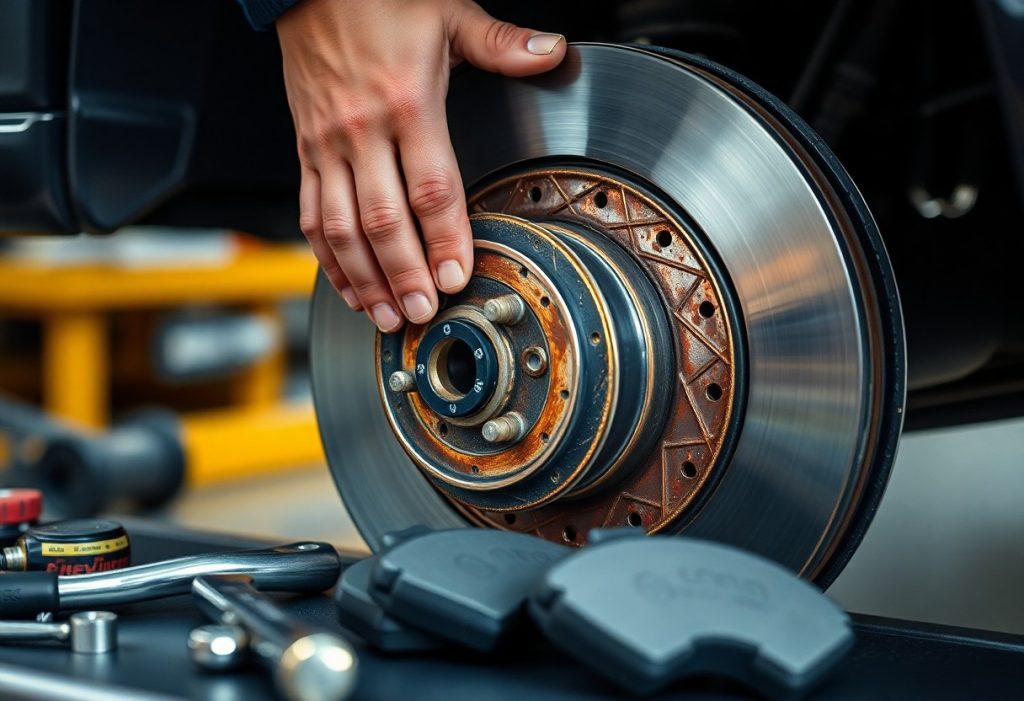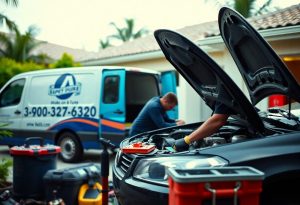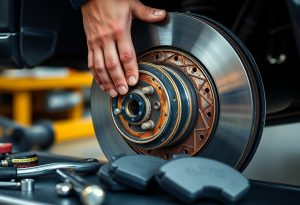This guide will arm you with the knowledge you need to tackle rusted brakes and rotors effectively. You depend on your brakes for safety, and any signs of rust or wear should not be ignored. By checking your brakes regularly and addressing issues early, you can avoid expensive repairs and ensure your vehicle is safe to drive. Follow these expert tips to keep your brakes in top condition and protect yourself and your loved ones on the road.
Key Takeaways:
- Regular Inspection: Check your brakes every few months, especially in humid or salty conditions, and look for signs of rust on rotors.
- Address Warning Signs: Do not ignore symptoms like squeaking or grinding; early detection can save you from costly repairs.
- Act Quickly: If rust is spotted, tackle it immediately with cleaning or resurfacing to avoid the need for complete replacements later.
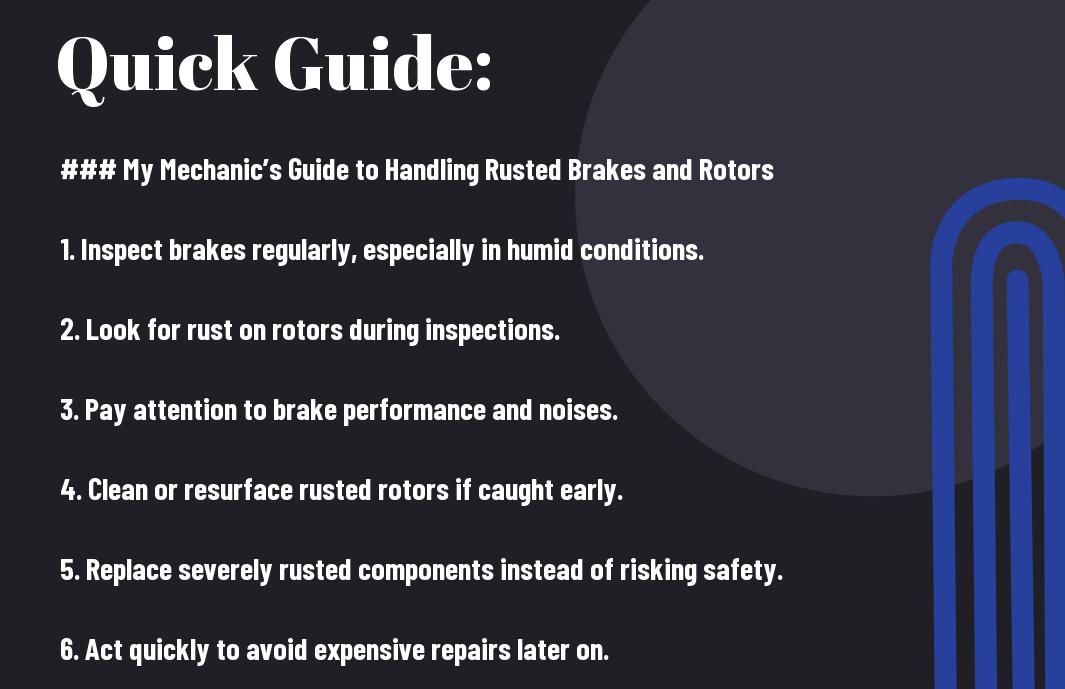
Understanding Rusted Brakes and Rotors
The process of rust developing on your brakes and rotors can happen quickly, especially in humid or salty conditions. If left unchecked, rust can significantly compromise your vehicle’s braking system, leading to decreased performance and safety issues. Regular inspections can help catch these problems early, ensuring your brakes remain effective. Don’t underestimate the importance of maintaining your braking system; they are the most vital safety feature in your car.
Types of Brakes
Little do many drivers know that there are different types of brakes in vehicles, each designed for specific performance needs.
| Disc Brakes | Commonly used in modern vehicles, offering effective cooling and performance. |
| Drum Brakes | Typically found in older cars, they work by pulling shoes against a spinning drum. |
| Anti-lock Braking System (ABS) | Prevents wheel lock-up during hard braking, enhancing safety. |
| Electro-hydraulic Brakes | Combines hydraulic and electric systems for advanced performance. |
| Performance Brakes | Designed for high-performance vehicles, providing superior stopping power. |
This variety of brakes signifies the importance of knowing your vehicle’s system for better maintenance and performance.
Types of Rotors
Brakes and rotors work hand in hand, so understanding rotor types is equally important. Each rotor type presents unique characteristics, affecting how effectively your vehicle stops.
| Standard Rotors | Basic rotors ideal for everyday driving conditions. |
| Slotted Rotors | Designed to improve ventilation and reduce brake fade. |
| Dimpled Rotors | Provide enhanced performance with better heat dissipation. |
| Performance Rotors | Developed for high-speed applications, offering superior stopping power. |
| Drilled Rotors | Promote cooling and minimize brake fade in extreme conditions. |
Knowing the type of rotors your vehicle uses can help you make informed maintenance decisions.
Another critical aspect of ensuring your braking system’s effectiveness is understanding the specific features of each rotor type. They not only impact your vehicle’s performance but also influence how rust can affect them.
- High-performance vehicles increasingly rely on performance rotors.
- Standard rotors are more susceptible to rusting.
- Slotted and dimpled rotors improve ventilation.
- Drilled rotors can be advantageous in wet conditions.
- Regular inspection of rotors is imperative for safety.
Knowing the characteristics of your vehicle’s rotors helps you take the necessary steps for maintenance, ensuring your braking system continues to perform effectively.
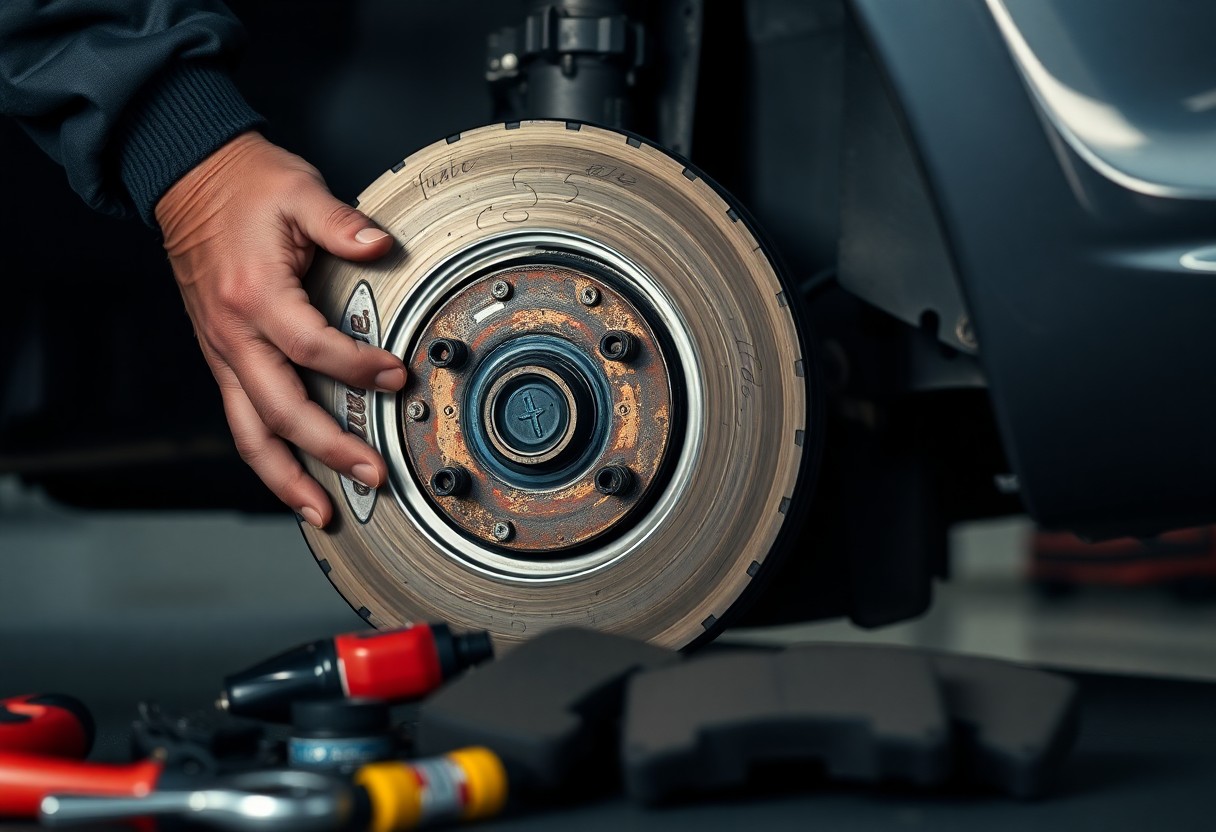
Factors Contributing to Rust
It’s necessary to understand the various factors that can lead to rust on your brakes and rotors. Here are some common contributors to rust:
- High humidity
- Salty road conditions
- Lack of regular inspections
- Poor maintenance practices
- Extended vehicle downtime
This knowledge will help you take proactive measures to protect your vehicle.
Environmental Influences
Contributing to the rusting process are factors such as moisture, salt, and temperature fluctuations. If you live in a region with high humidity or experience winter road treatments, your brakes are more susceptible to rust. Being aware of your local environment can help you implement a rust prevention strategy.
Maintenance Practices
Rust issues can escalate quickly without proper maintenance. You should routinely inspect your brakes and rotors to catch early signs of rust. Regular cleaning to remove dirt and moisture will also minimize corrosion. Avoid long periods of inactivity for your vehicle, as this can promote rust formation.
Practices such as performing monthly checks, ensuring your brakes are dry after washings, and applying appropriate protective coatings can significantly extend the life of your brake components. Keeping brake pads in good condition is necessary, as worn pads can accelerate rust wear. By routinely addressing these prevention strategies, you protect your safety and save money on potential repairs.
Tips for Preventing Rust
Now, you can protect your brakes from rust with a few simple steps:
- Keep your brakes clean and free of debris.
- Apply a quality brake lubricant to prevent moisture buildup.
- Avoid driving through salt water and road salt whenever possible.
- Consider using a rust inhibitor for added protection.
This proactive maintenance can save you significant time and money. For more on how to handle rust on a vehicle sitting for a couple of months, check out this resource.
Regular Inspections
The best way to avoid rust damage is through routine inspections. Check your brakes every few months and after exposure to harsh weather. Look for any signs of wear like squeaking or grinding noises. Addressing these issues early on can prevent costly repairs down the line.
Proper Cleaning Techniques
If you want to keep your rotors rust-free, it’s vital to utilize effective cleaning techniques. Regularly wash your brakes with a high-quality cleaner designed specifically for brake components. Avoid using abrasive materials that could scratch or damage the surface. For stubborn rust, a non-metallic scrub pad can help remove buildup without compromising your rotors’ integrity.
It’s also advisable to inspect your vehicle after driving in wet or salty conditions. If you notice significant rust buildup on your rotors, take action fast—either by cleaning them, or if necessary, replacing components to ensure optimal safety. Neglecting rust issues can lead to brake failure, putting you and others at risk. Consistent care and attention can make all the difference in preventing extensive damage.
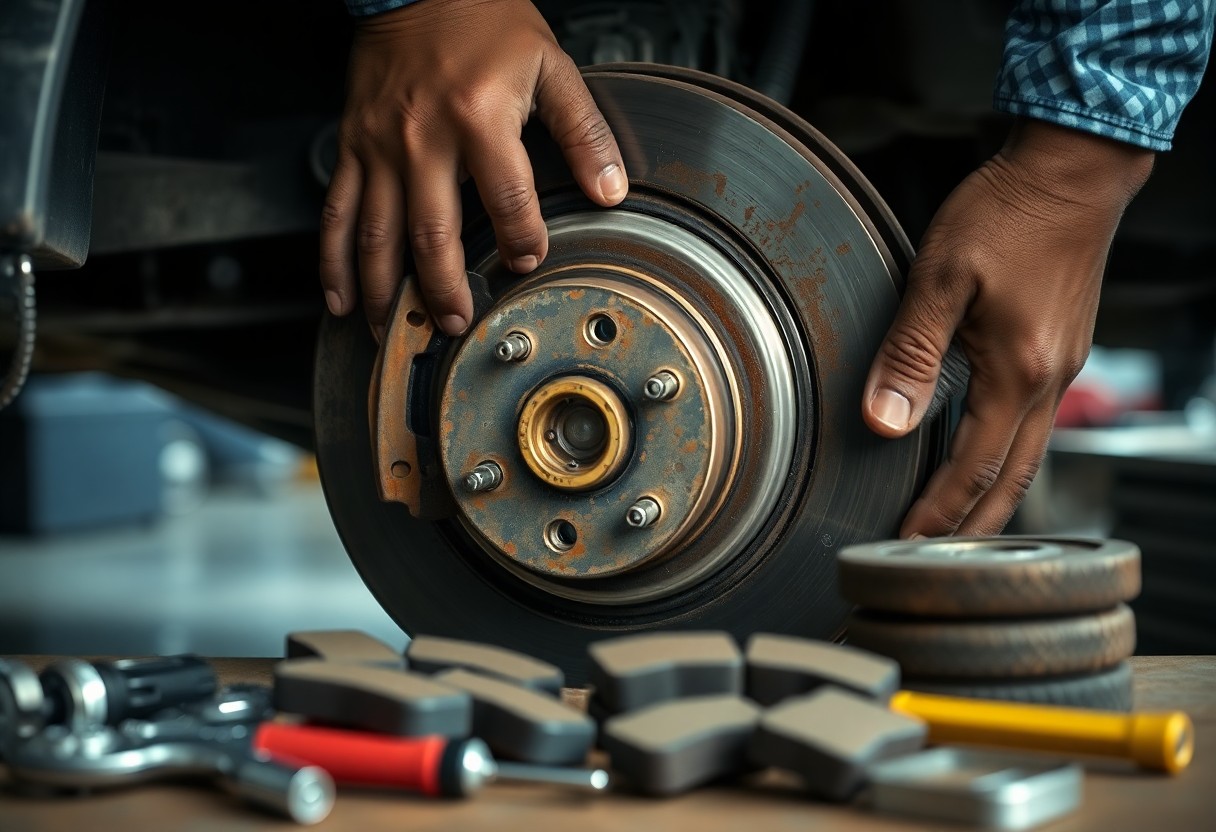
Step-by-Step Guide to Addressing Rust
Unlike ignoring the signs of rust, taking action can significantly prolong the life of your brakes and rotors. Here’s a systematic approach to tackle this issue effectively:
| Step | Action |
|---|---|
| 1 | Conduct an initial assessment to identify rust severity. |
| 2 | Clean the rotors using appropriate tools. |
| 3 | Inspect for additional damage, like worn brake pads. |
| 4 | Decide between cleaning or replacement based on condition. |
Initial Assessment
Clearly, a thorough examination of your brakes is important. Check for visible rust on the rotors and listen for any unusual sounds like squeaking or grinding. Make notes of any immediate concerns so you can address them promptly.
Cleaning and Restoration Process
You can often restore mildly rusted rotors with proper cleaning techniques. Start by using a wire brush or drill attachment to remove surface rust. Afterwards, inspect for any deep pitting or grooves that could indicate more significant issues.
This cleaning process is beneficial because it can prevent dangerous brake failure when done early. However, if the rotors are too severely rusted, no cleaning will suffice, and you’ll need to replace them to ensure your safety. Stay proactive: by addressing rust early on, you’ll save both time and money on future repairs.
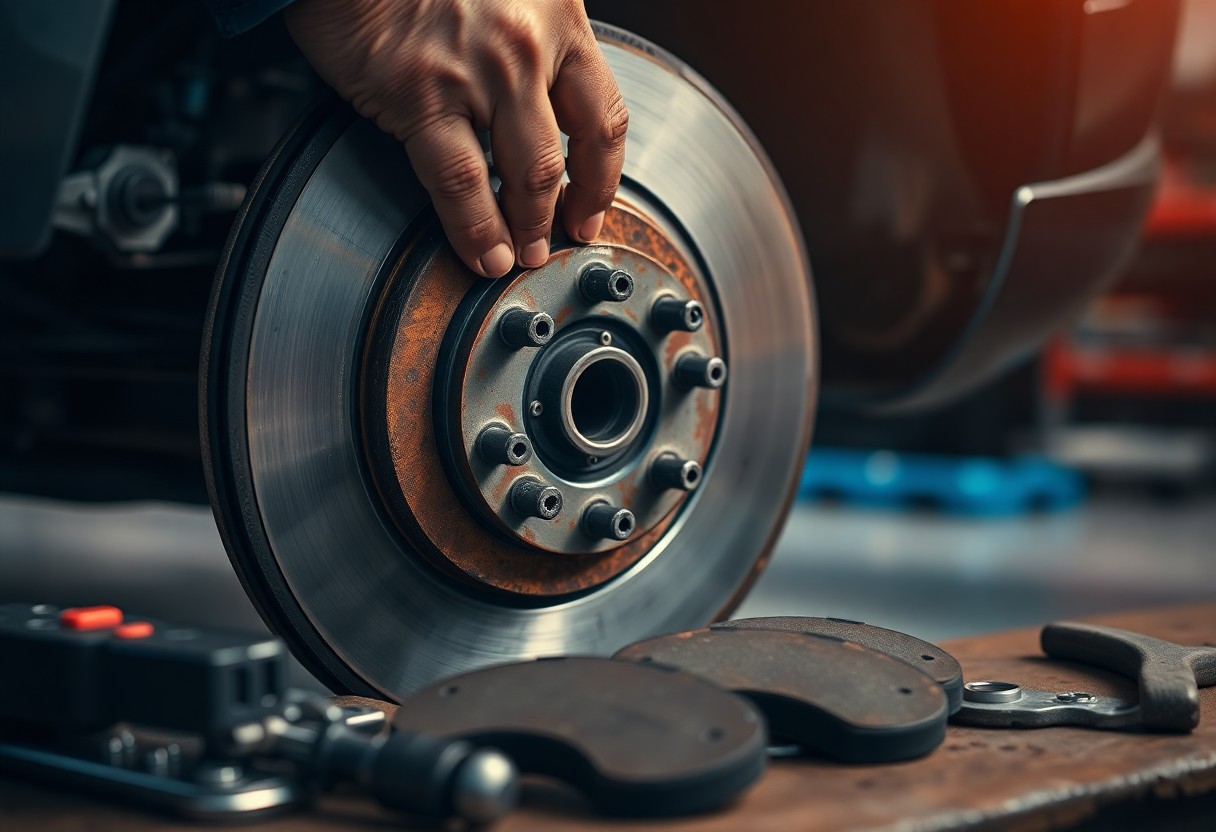
Not Every Issue is the Same: Pros and Cons of Repairing vs. Replacing
Choosing whether to repair or replace rusted brakes and rotors can be complex. Below is a breakdown of the pros and cons to help you decide the best course of action.
| Pros | Cons |
|---|---|
| Lower immediate costs with repairs. | Repairs may only be temporary fixes. |
| Less time-consuming than replacements. | Risk of further damage if rust persists. |
| Can extend the life of existing components. | May not address underlying issues. |
| Maintains your vehicle’s original parts. | Potential safety risks if not done properly. |
| Good for minor rust and wear. | Could lead to more expensive repairs later. |
You can probe deeper into this topic with more insights on Rusted out brake rotors – Maintenance/Repairs.
Benefits of Repair
For many minor issues, repairing your rusted brakes can be highly beneficial. It saves you money and time, allowing you to keep your vehicle on the road without hefty expenses. Additionally, swift repairs can prevent small problems from escalating into significant safety hazards.
When Replacement is Necessary
Cons of repairing come into play when the rust on your rotors is severe. If your brakes are squeaking or grinding and exhibiting noticeable wear, it’s time to consider replacement. Simply cleaning or resurfacing may not cut it, and in such cases, you risk endangering your safety on the road.
Repairing your rusted brakes might seem like a simple fix, but if the rotors are heavily rusted or damaged, replacement is critical. Ignoring serious wear can lead to brake failure, putting you in a dangerous situation. It’s important to act promptly before the damage escalates into a life-threatening issue.
The Role of a Mobile Mechanic
All great vehicles deserve great care, especially when it comes to brake maintenance. A mobile mechanic can provide the crucial services you need without the hassle of driving to a shop. They bring the expertise directly to you, ensuring your brakes are inspected and repaired, all while you focus on other important tasks.
Advantages of Mobile Services
If you find yourself dealing with rusted brakes, mobile services offer convenience and efficiency. You save time and avoid the stresses of getting your vehicle to a shop. Plus, a mobile mechanic can provide immediate solutions right where you are, reducing the risk of letting rust develop further.
How to Choose a Mobile Mechanic
Role requires diligence when selecting a mobile mechanic to handle your brake issues. Look for certified professionals with strong reviews and experience with rusted rotors. Ask about their specific training in brake systems and inquire about past customer experiences. A reliable mechanic will prioritize your safety, offering thorough inspections and transparent evaluations.
Mechanic experience is paramount in ensuring you receive top-notch service. Seek out professionals who specialize in brake repairs and have positive testimonials. Check for certification and insurance to guarantee you’re working with someone qualified. Don’t hesitate to ask about their process for addressing rust; a good mechanic will explain the steps they take to prevent expensive repairs down the line. Your brakes are vital for safety, so choosing a trustworthy mobile mechanic is crucial.
Conclusion
Upon reflecting on handling rusted brakes and rotors, it’s important to prioritize regular inspections and be attentive to any unusual signs like squeaking or grinding. Your safety relies heavily on maintaining these components, so acting swiftly when rust appears can save you from costly repairs down the road. By addressing minor issues before they escalate, you ensure that your brakes remain reliable, keeping you safe on the road. Taking proactive steps will help you maintain optimal vehicle performance and peace of mind.
FAQ
Q: How often should I check my brakes for rust?
A: It’s advisable to inspect your brakes every few months. This is especially important if you’re driving in environments with high humidity or salt, such as Florida. Regular checks can help you identify rust on your rotors early, before it becomes a more extensive problem.
Q: What should I do if I hear squeaking or grinding when I brake?
A: If you hear any unusual sounds like squeaking or grinding, it’s important to act quickly. These noises are early warning signs that something is wrong. Ignoring them can lead to further damage to your rotors and brake pads, potentially resulting in more costly repairs. Schedule a visit to your mechanic to have it checked out.
Q: Can rust on my rotors be repaired, or do I need replacements?
A: If caught early, rust on your rotors can often be cleaned or resurfaced. However, if the rust has progressed too far, replacement of the rotors may be necessary. It’s generally more cost-effective to address rust early, as waiting can lead to more extensive damage and higher costs down the line.

